H2: The 4 Allergen Foods for Mutts
Most dog owners struggle with pinpointing the exact dishes that trigger allergic reactions in their loyal companions. So, to help, below are the typical high-risk in mutt meals:
Chicken
Believe it or not, chicken is an allergen. It is often found in various kibbles, wet foods, and treats. Some dogs are genetically predisposed to chicken allergies, while others may develop them as they grow. Even if your mutt has been munching chicken before, they could still develop an allergy to this product.
Beef
Your dog might be having a genetic problem that makes them allergic to beef. As such, when they are exposed to it, they will start displaying allergic symptoms. Beef is often found in an array of dog meals, so it is best to scrutinize the contents before buying.
Dairy
Anything to do with milk can trigger an allergic reaction in your dog if they have an inborn or acquired sensitivity to the same. So, if you notice that your mutt is displaying signs of allergy, it is best to cease feeding them milk and its derivative products.
Egg
If a meal containing eggs gets your mutt sickly, the sensible thing to do is to eliminate this allergen. This way, you can keep their immune system from responding more vigorously over time and inducing even more agonizing allergy symptoms.
Other Canine Allergies Triggers
Apart from eggs, beef, chicken, and dairy, other foods can bring about unwanted reactions on the gut, skin, or coat of your mutt. The only way to know what your dog is reacting to is to eliminate one ingredient at a time. The main compounds you should look out for include:
- Wheat (contains gluten)
- Artificial preservatives and additives
- Soy
- Corn.
Is It an Allergy and Intolerance?
Food intolerance and food allergies can sometimes be confused to mean the same thing because some of their signs overlap. So, you need to know if your mutt is suffering from intolerance or allergy to deal with it.
 Distinct Conditions with Unique Symptoms
Distinct Conditions with Unique Symptoms
However, they are two distinct conditions. A food allergy happens when the immune system negatively responds to a particular protein hence making the body trigger an allergic response. Symptoms can include vomiting, swelling, itchiness, hives, nausea, and diarrhea. Sometimes, allergies can affect breathing and become life-threatening. Allergies can be solved by eliminating triggers.
Food intolerance, on the other hand, is a reaction to a particular food that is not triggered by the immune system. Food intolerance can often be controlled by eating the food in question in small amounts. Symptoms are bloating, eczema flareups, wind, and indigestion.
What to Consider When Purchasing Limited Ingredient Foods
When you go shopping for food for sensitive dogs, there are things you should always keep in mind. These are:
- The number of ingredients: if your dog is allergic to most things, then you want to feed them foods that they won’t react to. So, a limited ingredient product should have a small variety of protein sources as there will be a slimmer chance of a reaction occurring.
- Zero grains: grains are much more difficult for canines to digest. And, the more sensitive your mutt is, the more cautious you should be about grains.
- Essential additives: some additives may help your mutt’s body to deal with an allergic reaction. Look for probiotics, antioxidants, and omega fatty acids.
- Raw food: dogs are canines. Therefore, raw protein is closest to what their digestive systems can handle. Consider buying limited ingredient food that is wholly or partially raw.
 Frequently Asked Questions
Frequently Asked Questions
Are you confused about limited ingredient food for mutts? Do you have questions or concerns on this topic? Here are quick answers to the most common questions:
In What Ways Is Mutt Limited Ingredient Food for Allergies Unique from Regular Food?
Limited ingredient pet foods, specially made to combat allergies, usually have carefully selected ingredients for sensitive guts. Most contain one protein source too, like bison or lamb, so that dog owners can give their mutts only the protein they are not allergic to.
What Signs Show that My Dog Is Allergic to Food?
There are typical signs that will show you that your mutt may be suffering from an allergic reaction to food. The most common indications of food reactions are hair shedding, itchiness, and skin flareups. If the response is acute, your pooch may also experience diarrhea, vomiting after eating, hyper activeness, and aggression.
What’s the Best Relief for Canine Allergy?
You can treat allergies with natural remedies or over the counter meds, or both. Medication for allergies include antihistamines, decongestants, nasal sprays, and allergy shots. You can also switch to hypoallergenic foods such as oatmeal, lamb, venison, duck, potato, etc.
What Proteins Should You Feed a Dog with an Allergy?
Ideally, you want to feed your pooch novel proteins. Consider limited ingredient duck dog food or lamb food. Venison or rabbit are also excellent choices.
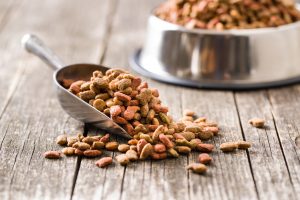 Verdict and Final Words
Verdict and Final Words
If you suspect that your dog has an allergy, these ten suggestions of limited ingredient foods are great options to consider. Purina Pro Plan is the overall recommendation as it helps to quite stomach and skin reactions as a result of protein allergy. That said, always consult your veterinarian before making a significant decision like putting your dog on allergy medication. Interested about another stuff for dogs? Read about best invisible fence for dog and dog stairs for high bed.
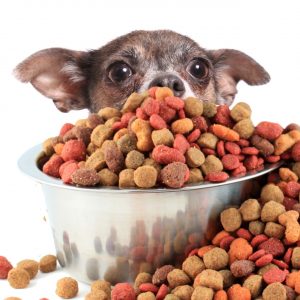 Not every mutt is the same. Some can consume anything without having an issue while others are sensitive or allergic to specific meals. Luckily, if you own a mutt who exhibits food-triggered side effects, the perfect solution lies no further than in feeding them any grain free limited ingredient dog food.
Not every mutt is the same. Some can consume anything without having an issue while others are sensitive or allergic to specific meals. Luckily, if you own a mutt who exhibits food-triggered side effects, the perfect solution lies no further than in feeding them any grain free limited ingredient dog food.

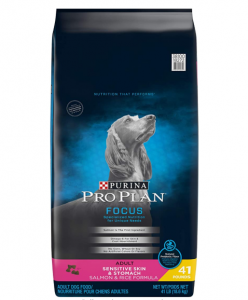

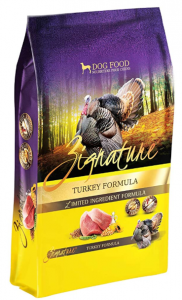
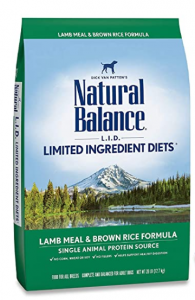
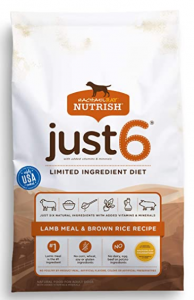
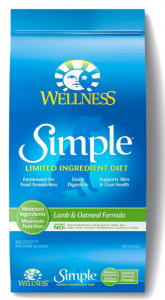
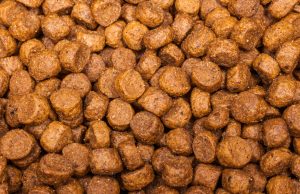 Grain Free Limited Ingredient Mutt Dish
Grain Free Limited Ingredient Mutt Dish



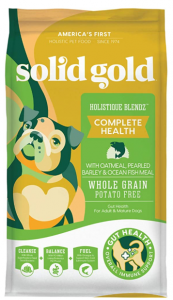
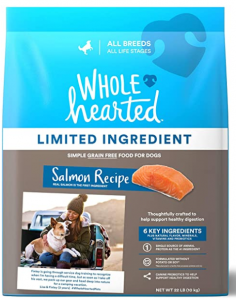
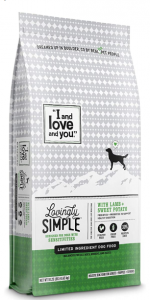
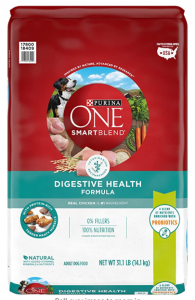
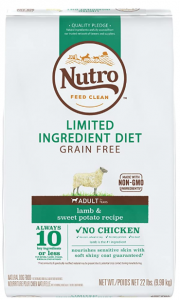
 Distinct Conditions with Unique Symptoms
Distinct Conditions with Unique Symptoms Frequently Asked Questions
Frequently Asked Questions Verdict and Final Words
Verdict and Final Words